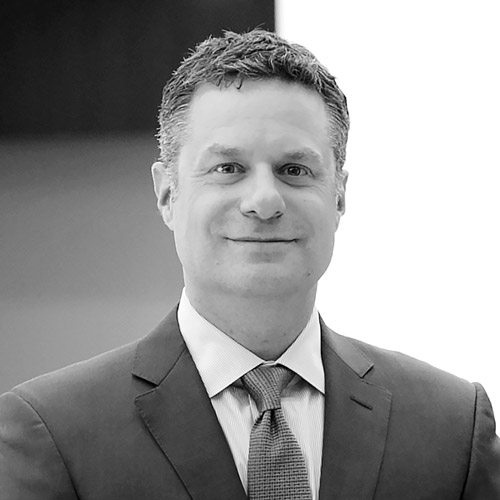Leo Stevens is the go-to guy for everything commercial at the Vernon Hills, Illinois-based pharmaceutical, scientific, and industrial-instrument distributor Cole-Parmer. If it touches revenue, he’s a part of it—whether that be dealing with third-party contracts, offering insights on rebates for sales promos, coming up with product pricing, or helping out with the company’s mergers and acquisitions strategy.
A key part of his responsibilities is in international sales, which Stevens notes is vital to success in the industry. For example, because the United States government does not permit certain sales in certain countries, he must always know where Cole-Parmer products are “resold” to ensure that they are not violating any rules or regulations.
Stevens recently spoke with AHL to delve into detail on all of these rules and more.
Many in the pharma industry may possess sales and marketing experience, but you’re distinguished in that your résumé is heavy with international sales experience. Why is that so important for someone in your position?
Stevens: When you look at the healthcare market or pharmaceutical market, many activities are taking place around the world. When you look at biologics, most are made overseas, particularly in Korea, China, and other parts of Asia. So, as you look at the market to understand market conditions and market flows, you need to have a relatively good understanding of the economics and viability of those countries.
Just recently, we saw North Korea launched ballistic missiles. Well, a lot of biologics are made in South Korea. How will that affect the market? You don’t know, but it’s an issue you have to pay attention to.
For those who just have only domestic experience, when they talk to pharmaceutical companies and they don’t have a good understanding of what’s going on around the rest of the world, they are not viewed as experts in the field.
“Recently, we saw North Korea launched ballistic missiles. Well, a lot of biologics are made in South Korea. How will that affect the market? You don’t know, but it’s an issue you have to pay attention to.”
When did you realize this was so important?
Stevens: Early in my career, I was very fortunate when I went into global strategy, the company I was with at the time, Thermo Fisher Scientific, actually put us through a six-week course on cultural sensitivity. It was really about when you’re dealing with people—both executives and the average, everyday worker—what are some cultural differences, and what are some faux pas you need to look out for? That has really stuck with me throughout my career.
What are some of the nuances of being successful in international sales in your industry?
Stevens: One of the first things you want to do to be successful is just understand what the cultural norm is for any particular culture. For example, one of our general managers has only been out of the US to take vacations in Canada or Mexico, and has an important customer in China, and that customer has invited her to the ten-year anniversary of his company as an honored guest as one of its biggest suppliers. The GM wrote back, ‘Thanks, no, tied up, not going to be able to make it.’ I was copied on the email, and I said, ‘You just created a huge issue.’ I explained why it was important that the response should be with a note that is more explanatory, and to send a small gift commemorating the event.
The nuances in working with different cultures is important. In the Middle East, when you have an appointment at 9:00 in the morning, you might not get in there until 10:00, have tea, and talk about families for another hour before you even discuss business. Some people may be upset that they had to wait, didn’t get right to business, and it can be insulting to them, but you need to know how things operate in each country you deal with.
What else is important with dealing globally?
Stevens: I think people need to spend more time on learning about the country they are visiting—the economy, who is in charge, and why. The people who run those companies really appreciate the fact that you take the time to do research in an area [where] they are making a living. Spend a few minutes talking about an upcoming election, and how it affects their business. It provides a level of comfort to them. Regular communication is also vital.
How has it given Cole-Parmer a leg up on the competition?
Stevens: You look at our main competitors, and they have huge international presence. Cole-Parmer competes with niche products, so when we go in with pharmaceutical accounts, our approach is more along the lines that we have some specific product you can’t get from anybody else—our fluid-handling product in particular. We sell other products as complementary pieces.
We understand in Europe you need CE markings, in Japan there’s the JPAL marking, and we have done that on our pumps and fluid-handling equipment, and we have the certification your company requires both in English and the language of origin. Our competitors for the most part have some of that, but a lot of products they don’t have. We’re able to capitalize on our advantage of being in different countries.
There are stringent regulations in some countries regarding pharma sales. How does this play into the complexity of the job?
Stevens: It’s a big issue for us. Besides the normal countries you can’t ship to, there are products you can’t ship unless you have certain stamps and regulations. There are also various hazardous material rules, so produce we may sell in Western Europe or the United States, may not be allowed to be shipped in Latin America or Africa because of the materials.
Batteries are a good example. There are certain batteries that you can’t ship into some South American countries, so we spend a fair amount of time ensuring that when our customers order a product from us, we set up a series of flags and personal checks to make sure we don’t send anything that violates the country’s rules and regulations. Many times the customers don’t know or understand that, and we help them with that understanding.
How do you do that?
Stevens: If the testing product we sell comes with batteries, we need to let them know we can’t bring those in. There are also some testing agents that fall into the same category. We help them understand the rules and regulations and what they can do to get what they need in their country. It also gives us a little bit of a competitive advantage over the guys we compete with.
What are some other challenges that someone in your position must keep in mind?
Stevens: Probably the biggest one is that many people in the world today still view the United States as the big giant bear, and if they can get it from somewhere else, they’re going to buy it from them. As we speak to these international customers, we let them know we’re global and we have offices in the United Kingdom, India, and Singapore.
The other aspect is many companies would prefer that you have a manufacturing site or distribution site in their country. The number-one reason is so they can then tax you on it. That becomes a challenge. A third aspect is the various HR regulations around the world. In many European countries you have to deal with a work council if you want to make any changes to benefits, work hours, etc. To change you have to go to a work council and present your case and get advice on if you should do it or not. AHL


